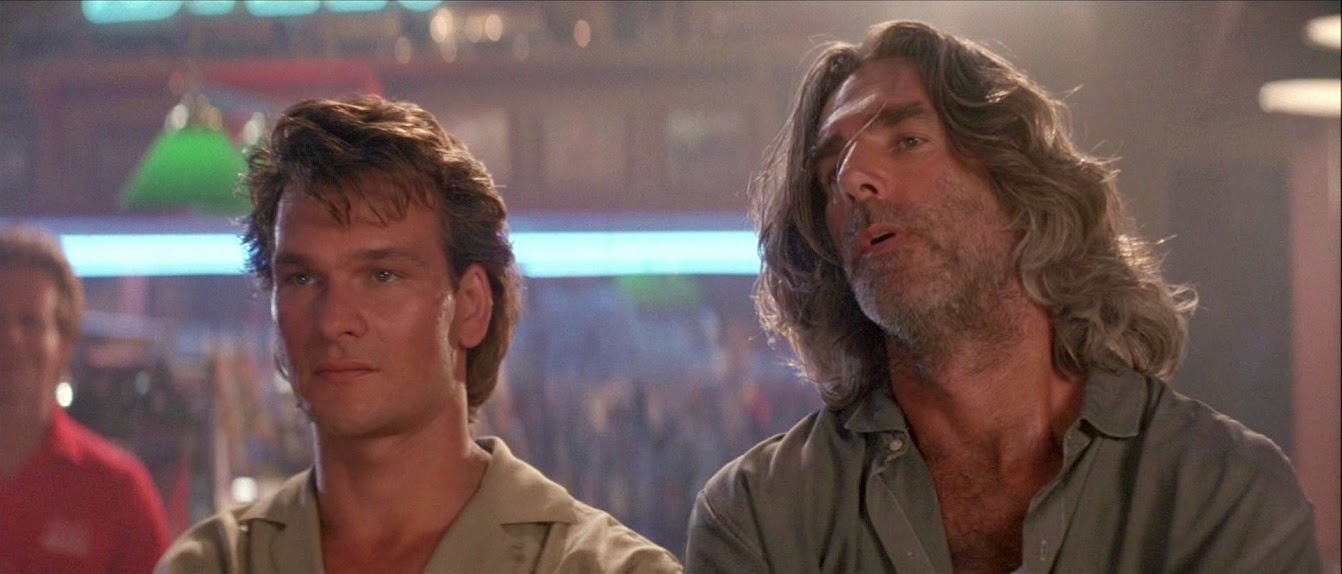The allure of the roadhouse villain is undeniable, captivating audiences with their raw charisma and menacing presence. These characters, often portrayed in smoky bars and rugged settings, embody rebellion and defiance against the norm. They serve as a reminder of the chaos that lurks just beneath the surface of everyday life, providing a perfect foil to the heroic figures that strive to bring order. From iconic films to modern TV shows, the roadhouse villain has become a staple in storytelling, appealing to our fascination with danger and the thrill of the fight.
The roadhouse villain often personifies the struggles of the human condition, making them relatable and, in some cases, even sympathetic. Their backstories are typically steeped in hardship, betrayal, or longing for power, which adds layers to their character. This complexity not only heightens the drama but also invites audiences to ponder the choices that lead individuals down a dark path. In this article, we will explore the various facets that make up the roadhouse villain, from their motivations to their impact on the narrative.
As we delve into the world of these notorious characters, we will also examine how they reflect societal values and fears. The roadhouse villain often emerges as a symbol of resistance against societal expectations, challenging the status quo and embodying the spirit of rebellion. By understanding these villains, we gain insight into the broader themes of morality, justice, and redemption that permeate our storytelling landscape.
What Defines a Roadhouse Villain?
The roadhouse villain is characterized by a few key traits that set them apart from other antagonists. These traits often include:
- Rugged Charm: They exude a magnetic personality that can draw people in despite their nefarious intentions.
- Physicality: They are often portrayed as strong and intimidating figures, capable of handling themselves in a brawl.
- Backstory: Their past is often fraught with hardship, giving depth to their villainy and sometimes eliciting a degree of sympathy.
- Defiance: They challenge social norms and authority, making them relatable to those who feel marginalized.
Who are Some Iconic Roadhouse Villains in Film History?
When discussing the roadhouse villain, several characters stand out in cinematic history. From the rough-and-tumble figures in classic Westerns to the dangerous bar owners in modern thrillers, these villains have left an indelible mark on popular culture. Some notable examples include:
- Jimmy “The Saint” Tosnia from “Get Shorty”
- Brad Wesley from “Road House”
- Tommy DeVito from “Goodfellas”
- Frank Costello from “The Departed”
Why are Roadhouse Villains So Popular?
Roadhouse villains resonate with audiences for several reasons. They embody the conflict between good and evil, often blurring the lines between the two. Their unpredictability keeps viewers on the edge of their seats, eager to see how their actions will shape the story. Additionally, the roadhouse setting—often synonymous with roughness and raw emotions—provides a perfect backdrop for these characters to thrive.
What Motivates the Roadhouse Villain?
Understanding the motivations behind a roadhouse villain’s actions can provide insight into their character. Some common motivations include:
- Power: Many roadhouse villains seek to assert dominance over others, using intimidation and violence as tools.
- Revenge: Past grievances often drive these characters to seek vengeance against those who wronged them.
- Survival: In some cases, their actions are fueled by a primal instinct to survive in a hostile environment.
- Fear of Vulnerability: A roadhouse villain may resort to villainous tactics to mask their own insecurities.
How Do Roadhouse Villains Contribute to the Story?
Roadhouse villains play a crucial role in driving the narrative forward. Their presence often forces the protagonist to confront their own beliefs and values, leading to character development and growth. The tension created by their actions can lead to pivotal moments in the story, such as climactic showdowns or unexpected alliances. By acting as a catalyst for conflict, these villains enrich the storyline and keep audiences invested.
What Role Does the Setting Play in Shaping the Roadhouse Villain?
The roadhouse setting itself is integral to the development of these villains. Typically portrayed as dimly lit bars or rough saloons, these locations serve as breeding grounds for unruly behavior, making them the perfect stage for villainy. The gritty atmosphere amplifies the stakes of any confrontation, providing an environment where anything can happen. This unpredictability adds to the allure of the roadhouse villain, reminding audiences that danger lurks around every corner.
What Can We Learn from Roadhouse Villains?
By examining the archetype of the roadhouse villain, we can glean valuable lessons about human nature and society. These characters often reflect our darkest fears and desires, inviting us to confront the complexity of morality. They remind us that everyone has a story, and that circumstances can lead individuals down unexpected paths. In understanding these villains, we gain a deeper appreciation for the struggles of others, fostering empathy and compassion in our own lives.
Personal Details and Bio Data of Notable Roadhouse Villains
| Name | Film | Character Traits | Motivation |
|---|---|---|---|
| Brad Wesley | Road House | Charismatic, Ruthless | Power |
| Jimmy “The Saint” Tosnia | Get Shorty | Witty, Manipulative | Survival |
| Tommy DeVito | Goodfellas | Impulsive, Violent | Revenge |
| Frank Costello | The Departed | Calculating, Fearless | Power |
In conclusion, the roadhouse villain is a multifaceted character that captivates audiences and challenges our perceptions of good and evil. Their rugged charm, complex motivations, and memorable settings create unforgettable narratives that resonate with viewers. By exploring the world of these notorious figures, we uncover the deeper themes of humanity, morality, and the choices that define us. Whether in film, literature, or real life, the roadhouse villain remains an enduring symbol of rebellion and the fight against oppression, reminding us of the complexities of the human spirit.




